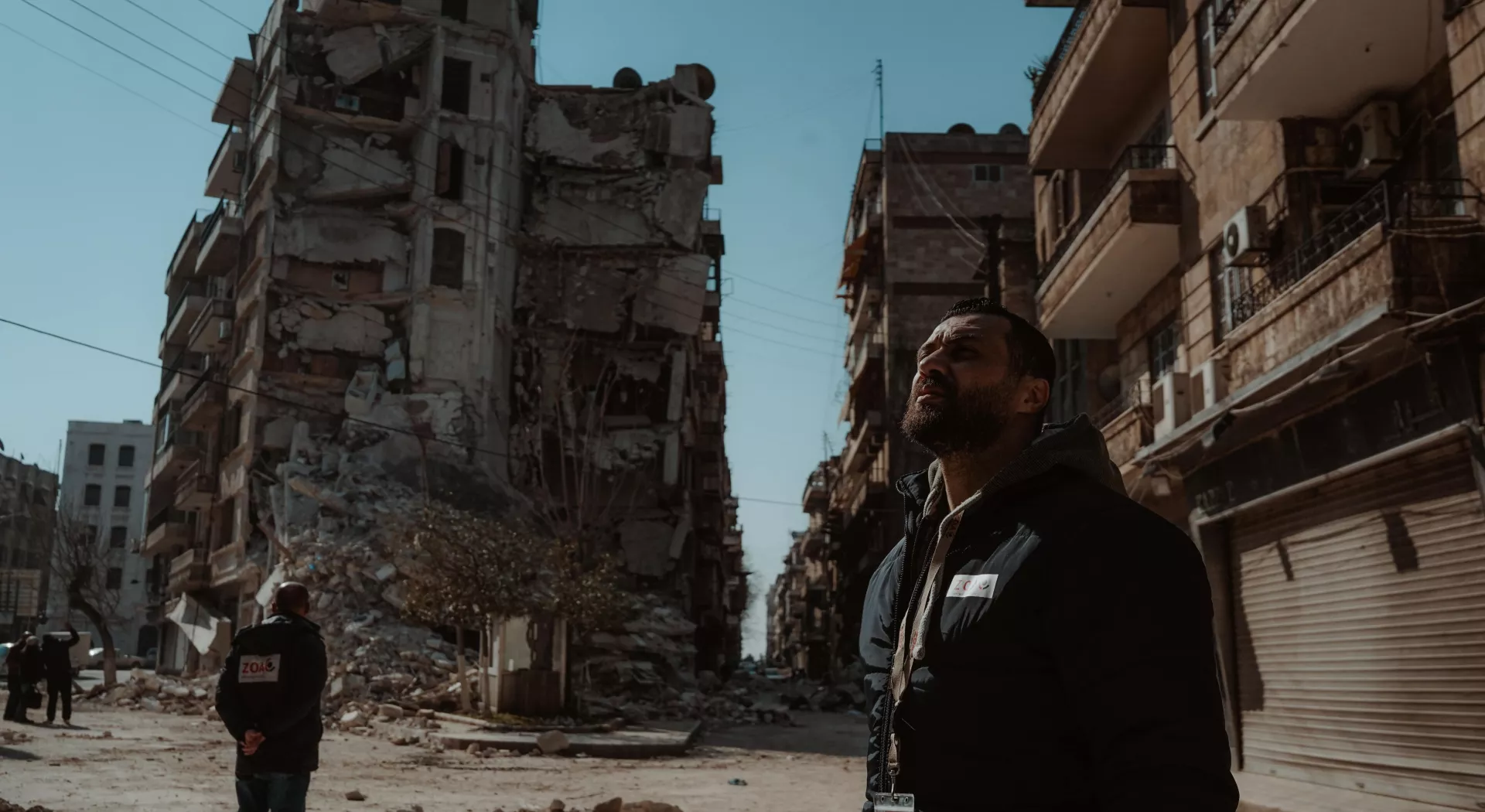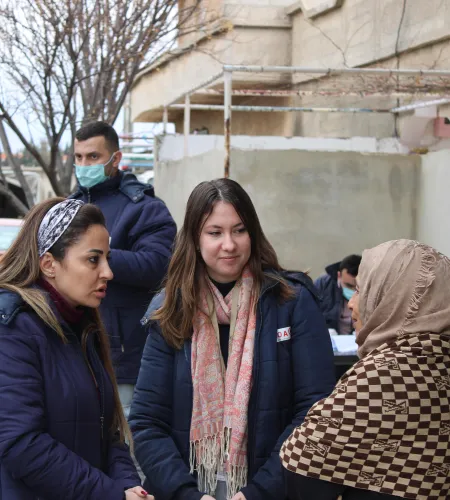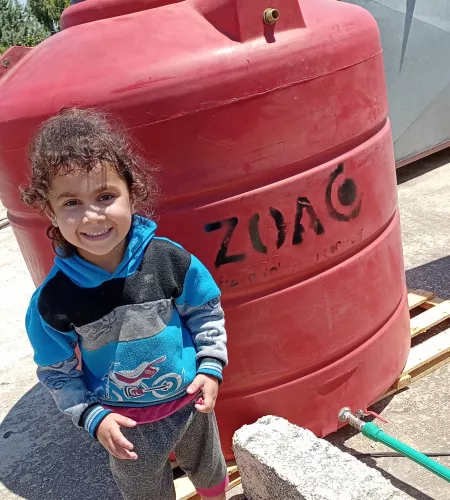Cash assistance
ZOA's activities are targeted at internally displaced persons (IDPs), host communities and returnees. ZOA always seeks to reach the most vulnerable groups, which are often women, children, elderly, female headed households, persons with disabilities and IDPs. We focus on WASH (water, sanitation and hygiene), food security & livelihoods, shelter/NFI and education.
ZOA has been active in Syria since 2015 and we strive to continue working in the areas where we are needed. Before establishing an office in-country, ZOA worked through local partners to reach people in need. ZOA Syria was registered in Syria in 2019 with an office located in Damascus. Since then we have been reaching out to the most vulnerable people through direct implementation as well as working with international and local partners. ZOA gives priority to three specific themes i.e. conflict sensitivity, gender and protection.
After the violent earthquakes in Syria, ZOA's emergency relief team came into action immediately. In the disaster area, our aid workers help with the most urgent items, such as shelter and warm clothing. Victims are often best helped with cash assistance. This way they can buy what they need most. As soon as the situation allows for it, ZOA also supports in building back basic services, such as water networks and schools.
Syria Joint Response
ZOA is the lead agency of the Syria Joint Response, a multi-year consortium funded by the Dutch Ministry of Foreign Affairs with a budget of over 40 million Euro. The consortium of Dutch NGOs has served over 2 million vulnerable people since 2015. During 2019-2020 ZOA led the consortium in an innovating Cash Based Programming in Syria.
Shelter and Non-food items
In Quneitra and Aleppo, we provide life-saving and life sustaining shelter support. We ensure that homes meet minimum standards and provide a higher quality of living conditions and better protection for vulnerable families. Work includes rehabilitation, repair or upgrade of existing shelters. People with disabilities are also targeted with protection specific activities. In Daraá, ZOA provides vulnerable households with core relief items and essential Non-Food Items (NFIs). Our NFI activities also include winterization assistance.



